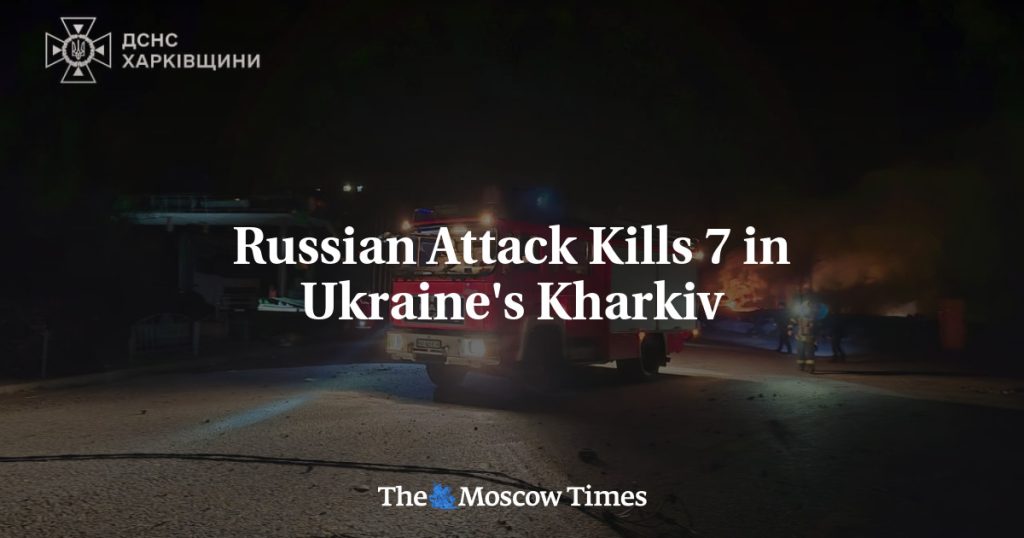On Saturday, Kyiv reported that a series of Russian attacks in Kharkiv, Ukraine’s second city, resulted in the death of seven people and injured a dozen more. The city, located near the Russian border, has been experiencing increased deadly attacks, over two years after Moscow’s invasion of the country. The attacks occurred overnight, killing six individuals, with one additional person losing their life in a separate strike on Saturday. The local prosecutor’s office confirmed the casualties and injuries, stating that the enemy’s missile strike hit the Shevchenkivskyi district of Kharkiv just after midnight.
The attack resulted in significant damage to residential buildings, administrative structures, dormitories, a kindergarten, shops, cafes, and vehicles. Kharkiv police reported that Russian forces deployed two S-300 missiles on the city, followed by drone attacks during rescue operations. Volodymyr Tymoshko of the local police force condemned the attack, highlighting the fact that it occurred while the city was sleeping. He also mentioned the practice of repeated shelling by Russian forces, noting that enemy drones arrived on the scene when rescue and service teams were responding to the missile strike, although they were successfully taken down by air defense.
Following the initial attack, another strike on the Shevchenkivskyi district on Saturday caused further damage to civilian infrastructure and resulted in a car catching fire. Oleg Sinegubov, the head of the Kharkiv regional state administration, reported that one person was killed and another was wounded as a result of this subsequent attack. The situation in Kharkiv remains tense as the city continues to face ongoing threats and assaults from Russian forces. The attacks on civilian areas and infrastructure have prompted widespread condemnation and calls for international support to protect the people of Ukraine and address the escalating crisis.
The Russian attacks on Kharkiv have sparked outrage and condemnation from Ukrainian authorities and the international community. The targeting of residential areas and civilian infrastructure represents a blatant violation of international humanitarian law and has resulted in the loss of innocent lives. The brutality of the attacks, including the use of missiles and drones on populated areas, has raised concerns about the escalating conflict and the need for urgent action to protect the civilian population. The Ukrainian government has called on the international community to intervene and put pressure on Russia to end its aggression and respect Ukraine’s sovereignty and territorial integrity.
The attacks in Kharkiv have further exacerbated the humanitarian crisis in Ukraine, with the city’s residents facing increasing insecurity and threats to their safety. The destruction of homes, schools, and other essential facilities has left many people without shelter, food, and medical care. As the conflict continues to escalate, the need for humanitarian assistance and protection for civilians has become even more urgent. The United Nations and other humanitarian organizations have called for unrestricted access to deliver aid to those affected by the violence and to ensure the protection of civilians in line with international humanitarian law.
The international community has condemned the Russian attacks on Kharkiv and expressed solidarity with Ukraine in the face of aggression. World leaders have called for a peaceful resolution to the conflict and have urged Russia to de-escalate the situation and engage in dialogue to find a political solution. Sanctions and other measures have been imposed on Russia to hold it accountable for its actions and deter further aggression. The conflict in Ukraine has once again highlighted the importance of upholding international law, ensuring the protection of civilians, and working towards a peaceful resolution to conflicts through diplomacy and dialogue. The plight of the people of Kharkiv and Ukraine as a whole serves as a stark reminder of the devastating impact of war and the urgent need for peace and stability in the region.


